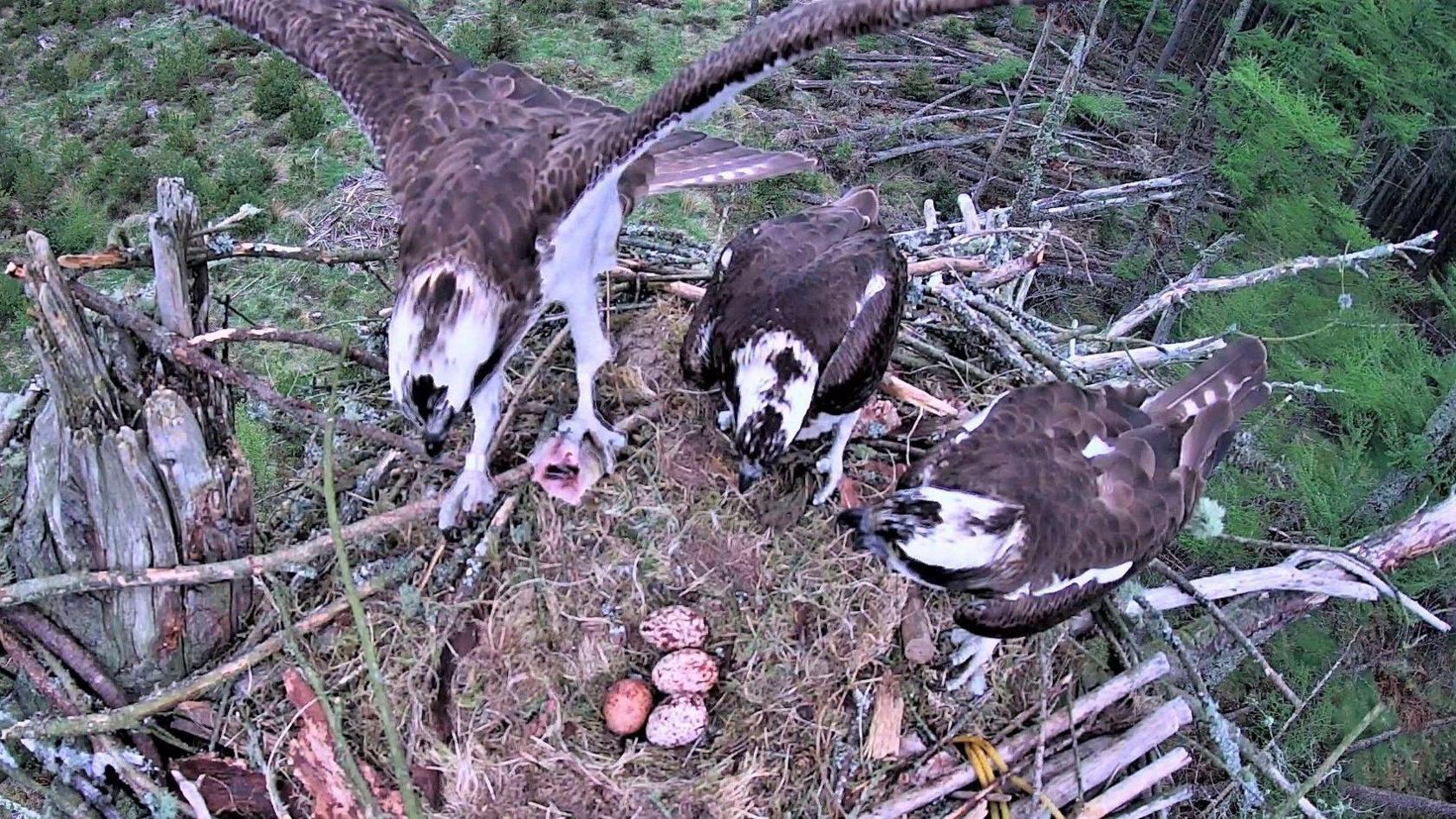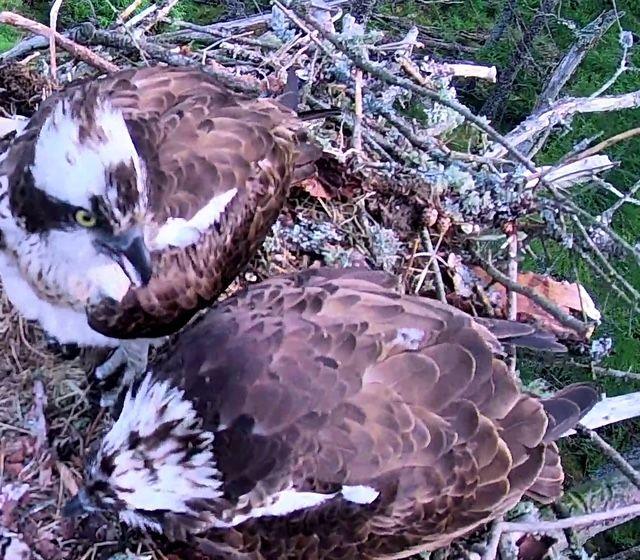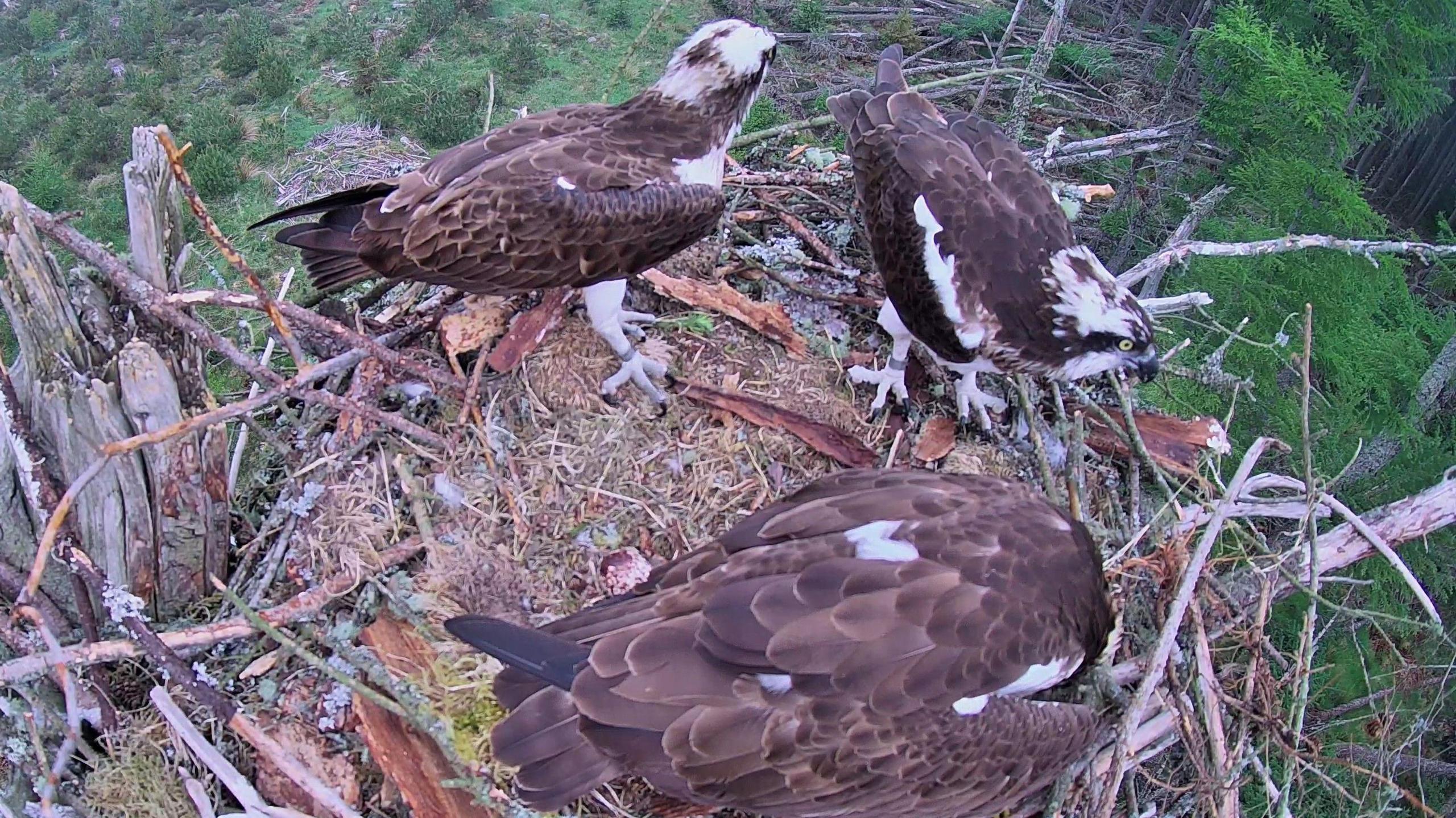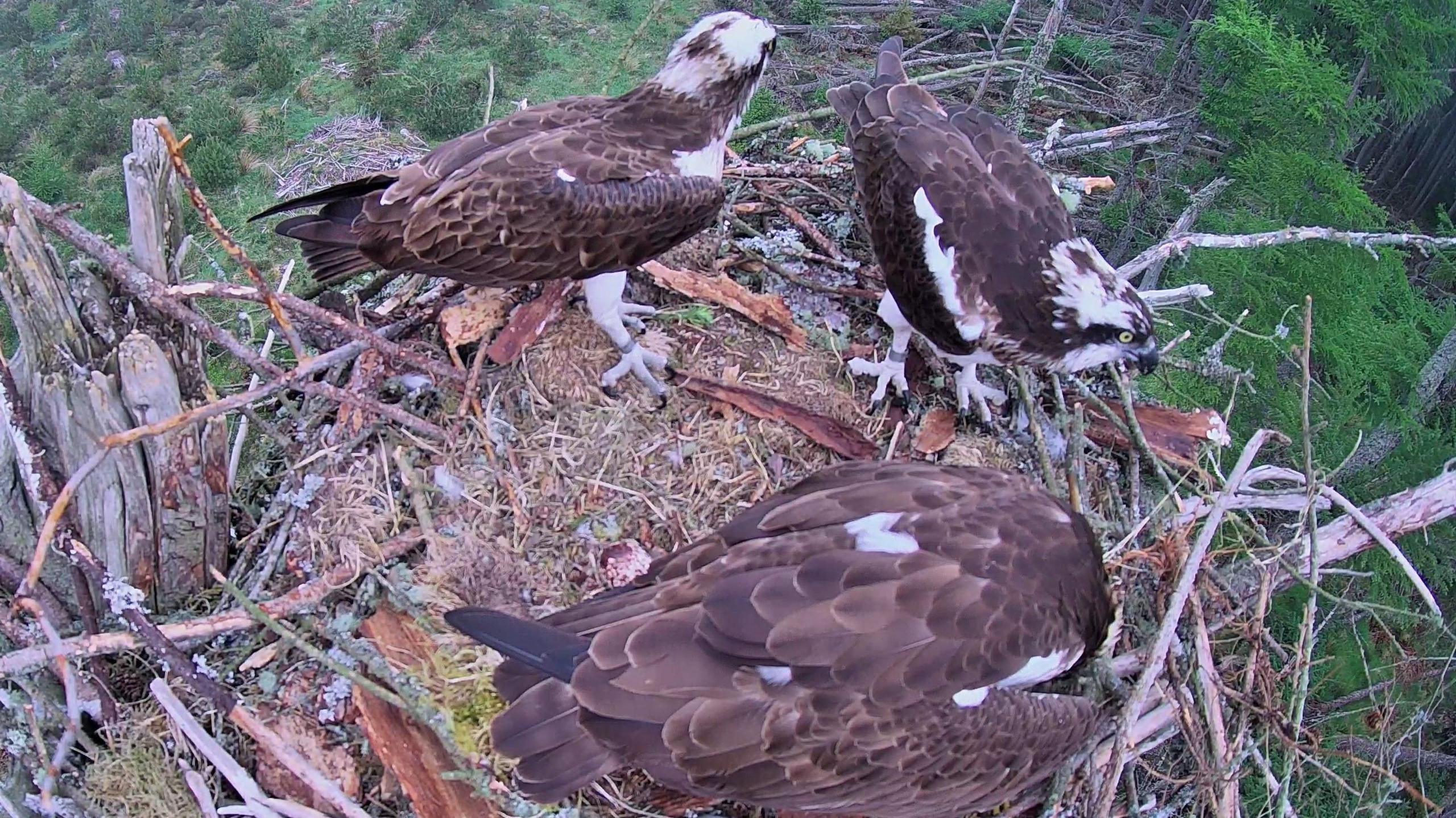Rare osprey love triangle chicks fail to survive

The three birds initially worked together to incubate the four eggs at the nest near Peebles
- Published
The four chicks which hatched as part of a rare osprey love triangle in the Borders have died.
Forestry and Land Scotland (FLS) had captured the unusual arrangement on cameras set up as part of the Tweed Valley Osprey Project (TVOP) at Glentress near Peebles.
Two female birds and one male had been breeding in what initially appeared to be a "tolerant" relationship.
However, after the male bird left the nest, the two females struggled to provide enough food for the chicks which ultimately failed to survive.

The two females struggled to feed the chicks after the male left the nest
The unusual breeding situation was revealed last month when the relationship between the birds was "looking good".
They worked together to incubate the four eggs in the nest and the chicks began to hatch on 28 May.
But by that stage the male bird - named Newboy - had abandoned the nest, leaving the two females - F2 and Mrs O - to provide for the chicks.
Project co-ordinator Diane Bennett said that process had started out quite well.
"It was with huge relief to everyone on the project when F2 brought a half-eaten fish back to the nest and both females began to feed the tiny chicks together," she said.
"It was a unique moment to witness and it was looking hopeful that they would figure out a feeding strategy to look after their young between them."
However, no further fish were brought to the nest over Friday and Saturday.
"The chicks were begging for food, Mrs O went into her instinctive role to nurture her young, protect them and to stay with them," Diane Bennett said.
"This left F2 to go against her natural instinct to do the same as Mrs O and to become the hunter and provider instead, which ordinarily is the role of the male bird in the osprey breeding cycle.
"F2 was struggling to fulfil this role, Newboy never returned and Mrs O was locked into her motherhood mode."

The Tweed Valley Osprey Project said the story of the birds had "touched many hearts".
She said that F2 did eventually return on Monday with a "small portion of half-eaten fish" but Mrs O was "so ravenous" that she had eaten it, leaving none for the chicks.
On Tuesday, when Mrs O stood away from the brood, it was clear that three of the young had died and one was still "begging to be fed".
F2 did eventually bring some fish to the nest but by that time the remaining chick had also "succumbed to starvation and passed away".
"Everyone is so heartbroken that the female ospreys have not managed to make this situation work," said Diane Bennett.
"This has been very upsetting and sad to watch this family drama turn to tragedy and brings home just how vulnerable and fragile the whole breeding cycle can be for ospreys.
"For their very brief lives they touched many hearts of people who dearly wanted them to survive."
However, she said it was "not all doom and gloom" in the Tweed Valley as other birds that had fledged from the area had been spotted far afield.
Sightings have been reported on the Isle of Anglesey, in North Yorkshire and the Usk Valley in Wales.
Related topics
- Published22 May
